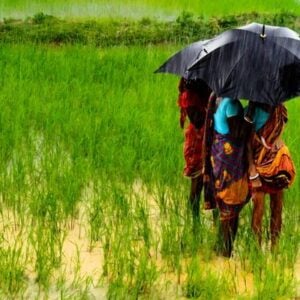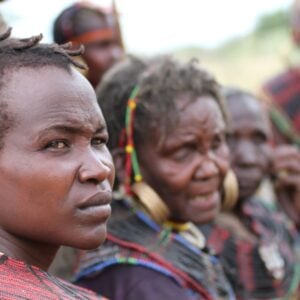In the Democratic Republic of Congo (DRC), the Forest and Savanna Restoration Investment Program (FOREST) is reshaping both landscapes and livelihoods. Launched last year with $290 million from the International Development Association (IDA) and $10 million from the Energy Sector Management Assistance Program (ESMAP), FOREST builds on the decade-long success of the Improved Forested Landscape Management Project (IFLMP). The initiative aims to enhance forested landscape management while supporting community livelihoods across seven provinces, leveraging lessons from IFLMP’s sustainable land management practices and agroforestry initiatives.
IFLMP, initiated in 2014 with funding from the Climate Investment Fund, Global Environment Facility, and the Central African Forest Initiative, successfully promoted sustainable land management over 375,000 hectares, including the establishment of more than 25,000 hectares of agroforestry plantations. Although the project concluded in May 2024, it left a strong foundation of political, environmental, and behavioral shifts that now guide FOREST’s efforts. The program continues to build on these achievements by co-financing smallholder farmers and providing payments for ecosystem services (PES) to support sustainable land use.
FOREST has already established over 900 hectares of sustainable agroforestry plantations in collaboration with private landowners, combining Acacia woodlots with crops like cassava, maize, cowpea, and groundnut. Different Acacia species are designated for charcoal and timber production, marking the start of a plan to enroll over 500 landowners—including at least 20% women—in creating 35,000 hectares of sustainable agroforestry plantations. The program empowers landowners with performance-based grants to overcome financial barriers, allowing them to reinvest profits from agricultural produce and sustainable charcoal into new plantations and ensuring long-term sustainability without reliance on subsidies.
The initiative is also creating significant employment opportunities. Smallholder plantations supported by FOREST are expected to generate 3,500 local jobs, with 106 permanent positions already created—83 of which are held by women—and 1,041 temporary jobs, including 374 for women. In Kongo Central, farmers participating in the project have already transformed their lands into sources of income and jobs, demonstrating the potential of agroforestry to generate local economic opportunities.
Beyond individual landowners, FOREST will support an additional 85,000 hectares of community-led plantations, guided by local development committees. Payments for ecosystem services will enhance livelihoods through sustainable practices, while value chain development initiatives improve market access and transform farm products. These interventions, including investments in roads and infrastructure, support the broader objective of sustainable rural development.
The acacia-manioc agroforestry system addresses key drivers of deforestation in the DRC, including slash-and-burn agriculture and illegal fuelwood harvesting, reducing pressure on natural forests while promoting sustainable livelihoods. Complementary initiatives support advanced charcoal production techniques and clean cookstoves, building on the previous IFLMP plantations. By pairing supply-side improvements with demand-side interventions, FOREST aims to deliver affordable, clean energy access while mitigating health risks from household air pollution.
As these acacia forests grow, they provide additional recreational value for local communities, embodying a model where environmental stewardship and economic empowerment advance together. The program demonstrates that sustainable forest and landscape management can drive both ecological protection and improved livelihoods in the DRC.







